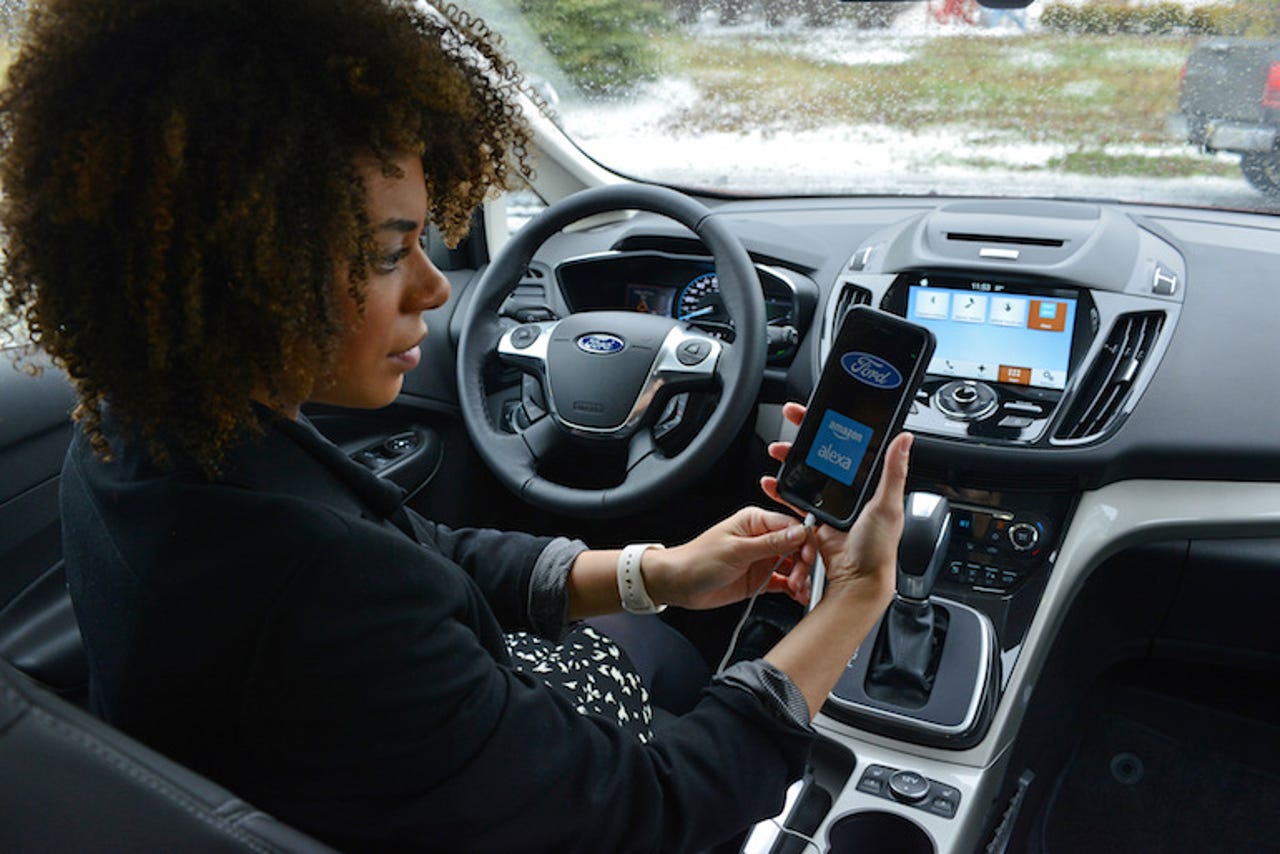Alexa, is my garage door closed? Ford wants your car to talk to Amazon Echo


Ford is working to integrate its in-car systems with smart home packages.
Ford is working on connecting its Sync in-car communications system to devices like Amazon Echo and others, so drivers can control smart home systems such as lighting, thermostats and security systems from their vehicles.
Connecting in-car and home-automation systems could also allow car owners to stop, start, lock, and unlock their car from the comfort of their couch.
Ford said the Sync system is running in 15 million vehicles around the world, rising to 43 million in five years. With half of consumers saying they will buy at least one smart home product in the next year, there is commercial potential in linking the two.
The level of computing power inside the average car has increased rapidly in recent years, and manufacturers are looking to exploit that to create new revenue streams.
But they also face new threats from competitors in the form of companies such as Google and potentially Apple, which are increasingly interested in autonomous vehicles.
The automotive giant said it is working to integrate its Sync Connect with Amazon Echo to provide voice-control access between the car and home - for example, to allow a driver to check home security systems or open a garage door, accessing Alexa through the steering wheel-mounted voice-recognition button.
Ford said by using Amazon Echo at home, car owners can start the car or could do things like checking fuel levels or getting their car's location and distance home.
Using Ford Sync AppLink, drivers can also connect with the Wink smart-home platform, which means they could program house lights to turn on when the car is a certain distance from home.
Ford also said it is tripling the number of autonomous research vehicles it has this year, from 10 to 30 vehicles being tested on roads in California, Arizona and Michigan.
"Using the most advanced technology and expanding our test fleet are clear signs of our commitment to make autonomous vehicles available for millions of people," Ford CTO Raj Nair said.
"With more autonomous vehicles on the road, we are accelerating the development of software algorithms that serve to make our vehicles even smarter."
Ford's fully autonomous cars are due to take to the streets of California this year. The company has already tested autonomous vehicles at its proving grounds and on public roads in Michigan.
Ford said the objective of the new vehicles is to test many of the computing and sensor components required to achieve fully-autonomous driving.